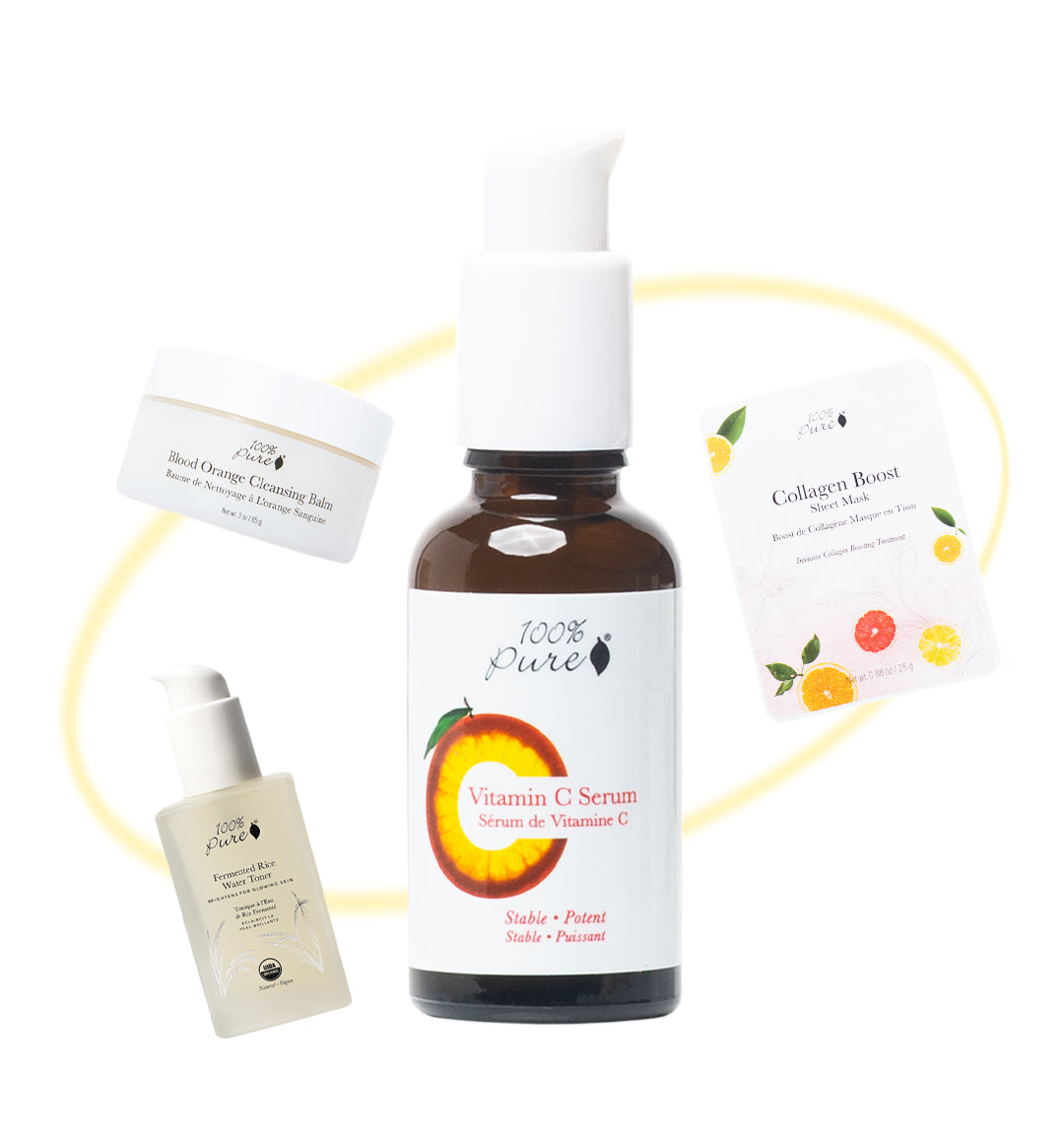
[ad_1]
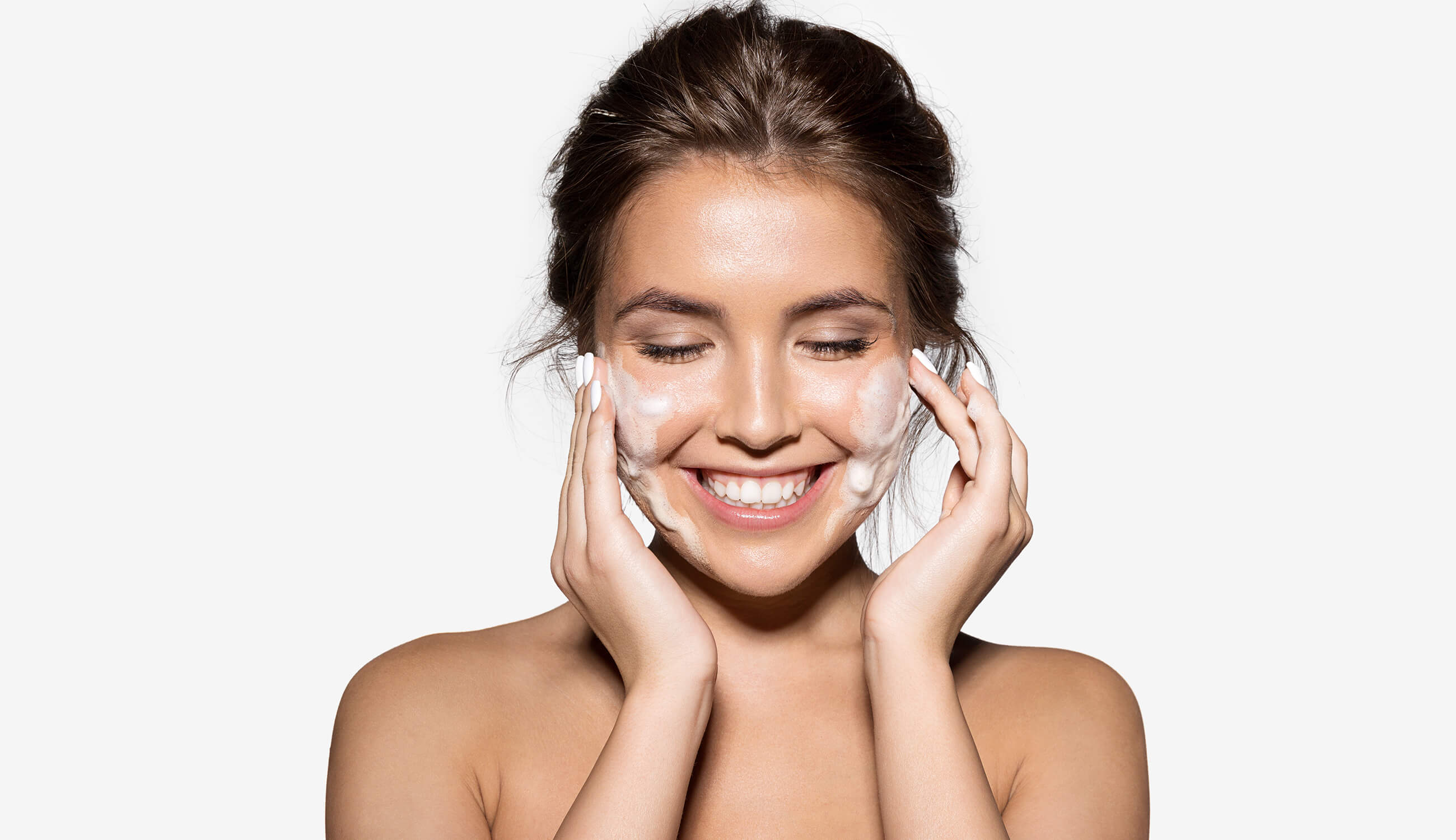
Washing your face seems straightforward. Yet all too often, we forget that our skin is a fragile, living tissue that needs to be treated with care. We believe in using pure, skin-healthy ingredients capable of providing lasting results.
However using natural products is only the first step in maintaining a clean and healthy skin regimen. In this post, we’ll discuss the most important do’s and don’ts of face cleansing, and tackle the basics of washing your face the right way – according to dermatologists – plus the best facial tools and cleansers to achieve a fresh, radiant complexion.
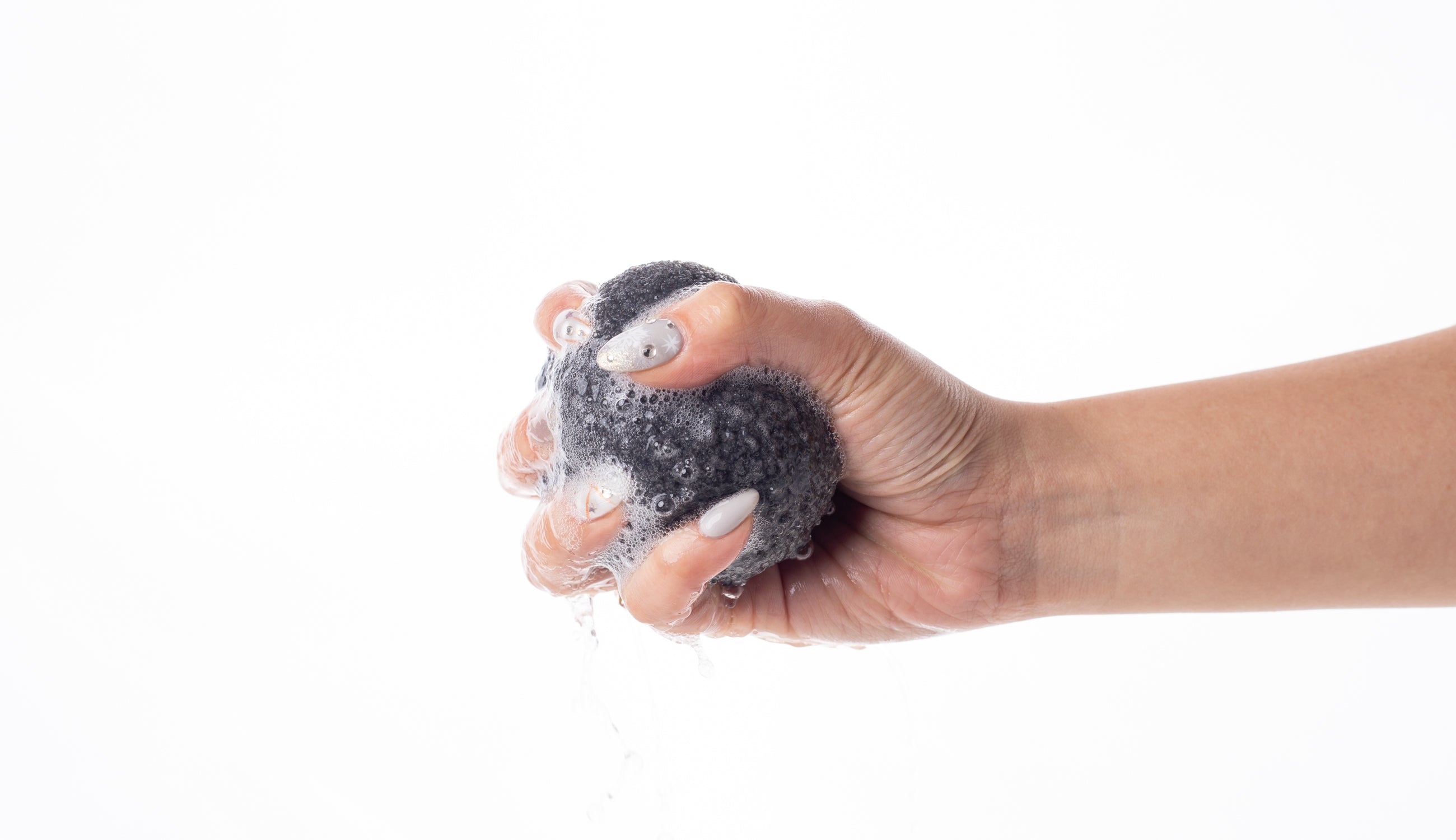
What Are the Best Tools for Facial Cleansing?
When it comes to washing your face, fingertips are the best tool you can use – provided they’re clean! The American Academy of Dermatology warns against scrubbing your skin with harsh surfaces like washcloths and mesh sponges, which can irritate and damage your skin.
Using a gentle Konjac sponge or facial cleansing brush is a different matter, as these tools are specifically made for face cleansing. However, you’ll still want to make sure that you’re gentle on your skin when using these tools. Dry or sensitive skin types may prefer using their fingers, but a lathered konjac sponge can be just as gentle.
What Is the Best Water Temperature for Washing Your Face?
According to dermatologists, very hot water can strip the skin of its natural oils, weakening its defensive barrier. This is bad news for skin health, because the defensive barrier plays an important role in preventing skin damage from UV rays and other environmental aggressors. It also helps to defend your skin against irritants that could cause inflammation.
Try rinsing your face with lukewarm water prior to cleansing, as this will help to open your pores, and following up with cold water to seal your skin’s cuticle.
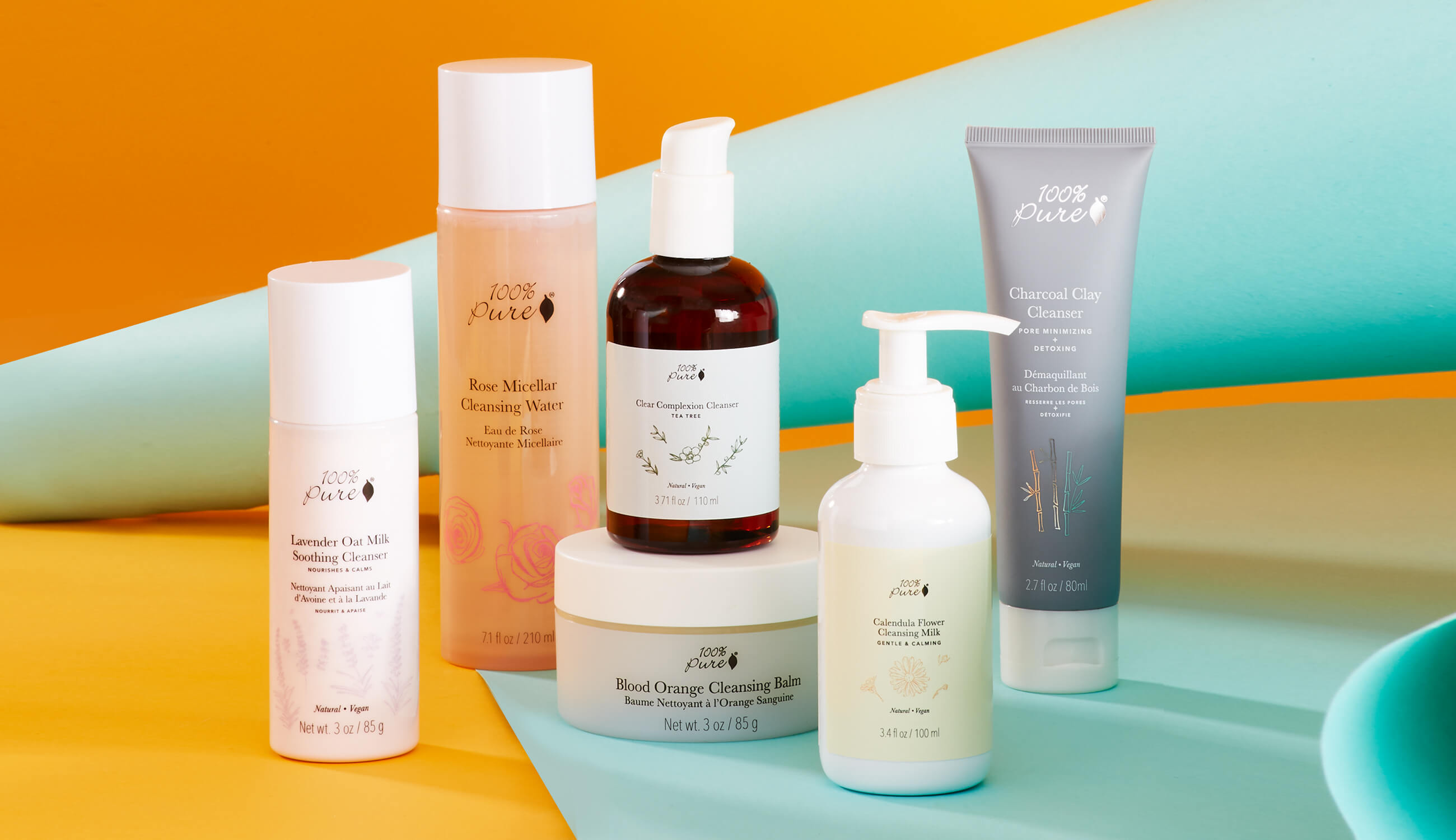
Does Cleansing Remove Makeup?
You wouldn’t polish a car before washing it, would you? It’s the same concept with your skin: an effective beauty routine starts with a smooth, deeply cleansed dermis. Before you try to reap the full benefits from your skincare products, focus on removing the impurities from your skin without stripping its precious barrier.
Washing your face once with a conventional cleanser is unlikely to remove all the makeup and/or sunscreen on your skin. Thoroughly removing makeup with an effective cleanser is incredibly important for avoiding breakouts and lessening signs of aging. Makeup residue that’s left on overnight can cause skin fatigue, clogged pores, and other skin concerns. We recommend removing your makeup thoroughly before cleansing your skin.
Should You Double-Cleanse?
Double-cleansing doesn’t just mean washing your face twice in a row. This Korean skincare ritual involves first using a natural oil cleanser to remove impurities. Our Blood Orange Cleansing Balm is a moisturizing facial cleanser made with degreasing blood orange, plus coconut and olive oils to sweep away even the most stubborn makeup, debris, and impurities.
The second step in the K-Beauty double-cleanse routine is to follow with a water-based cleanser to remove every impurity from your skin. Our Rose Micellar Cleansing Water gently rinses away makeup, sunblock, excess oil, and environmental toxins while purifying and toning with calming floral waters.
This double-cleansing duo guarantees that dirt, makeup, and other grime gets thoroughly dissolved and removed from your skin. It’s an especially good idea for anyone who wears heavy makeup, waterproof mascara, or sunscreen.
If you have sensitive skin, we recommend choosing gentle double-cleansing products, such as a natural oil paired with a gentle cream cleanser.Dermatologists recommend that you only double-cleanse once per day; preferably in the evening, to remove any residue leftover from your active day.
PRO TIP: Check out our user-friendly guide to face wash, to help you choose the right formula for your skin type.
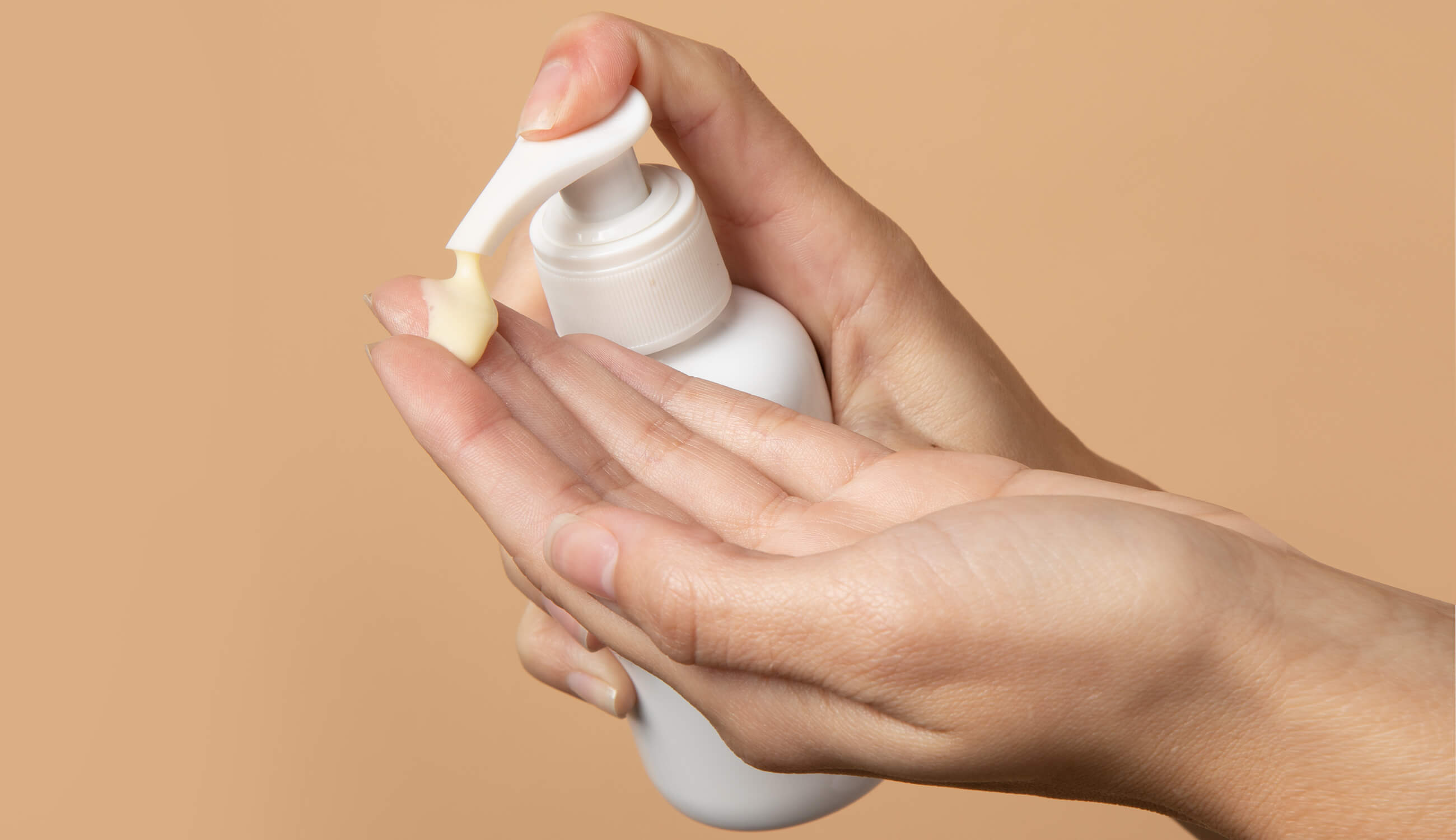
How Often Should You Wash Your Face?
Over-washing your skin can lead to dryness, inflammation, and a weakened defensive barrier. However, under-washing can cause dullness as well as clogged pores from impurities, which can lead to acne. This could further increase your risk of getting a skin infection.
According to the American Association of Dermatologists, you should try to wash your skin once in the morning and once in the evening, and after sweating profusely. Sweat can irritate your skin, clog pores, and cause breakouts. Therefore, it’s important to cleanse your face as soon as possible after sweat-inducing activities, like intense exercise.
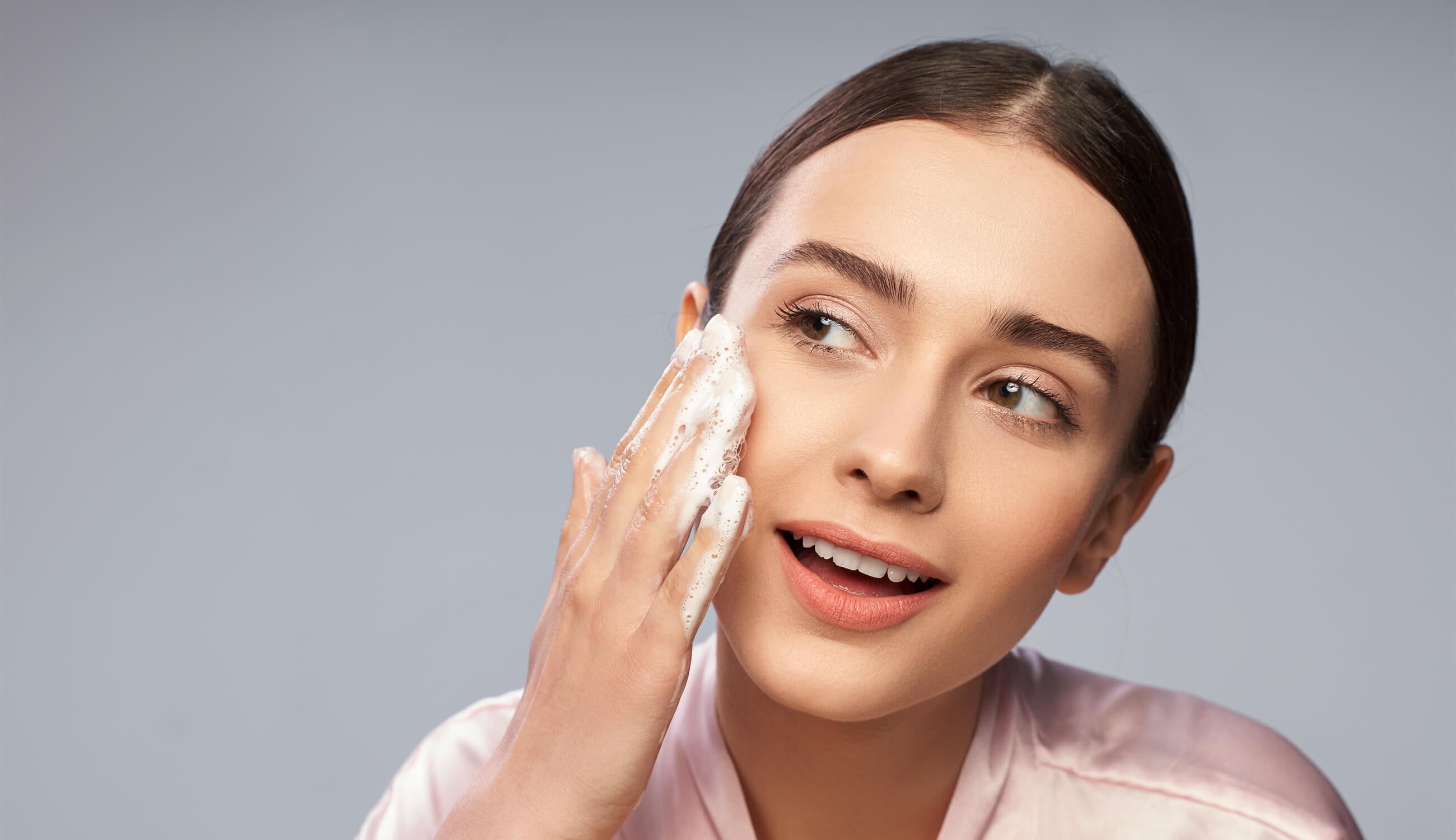
How to Wash Your Face: The Do’s and Don’ts
Understanding how to wash your face correctly can feel overwhelming, especially if you’re set in your routine. But we’re here to make things a little more approachable! Here are some of the biggest do’s and don’ts for how to properly wash your face so you can avoid a stripped skin barrier and maintain a clear, fresh, healthy complexion!
Do: Cleanse Your Face Every Night
This might be the most important tip: washing your face should be a ritual that happens every night, not just on the days when you wear makeup. The point of washing your face is to clear it of all residue from the day. This includes not just removing mascara and blush, but also sunscreen, sweat, and the bacteria your skin has accumulated throughout the day. So, no matter what, always wash your face before bed!
Don’t: Go Crazy With the Tools
There’s a wide world of facial tools out there, and they all claim to enhance your wash routine. But here’s the truth: your hands work just fine, and some gadgets can do more harm than good. Some tools can tug and tear your skin, or be too abrasive for your skin type. Be selective with what you use, and if you do use a facial tool, be sure to keep it clean and sanitized.
Do: Try an Exfoliating Cleanser
An exfoliant is a product that can benefit anyone. It’s meant to slough away dead skin cells and clear out sebum, promoting clearer pores. Exfoliants can be physical, taking the form of a scrub. Our Acai Pulp Facial Scrub naturally smooths away bumps, flakes, and dead skin while instilling vitamins and antioxidants for a super soft, glowing complexion. You can also use a chemical exfoliant, which means that it dissolves impurities using alpha or beta hydroxy acids.
Don’t: Scrub Every Night
While exfoliating can do wonders for your skin, it’s important to know that you can easily overdo it. Try sticking with one to three exfoliators per week, as over-exfoliating can strip the skin and throw off the balance of your delicate acid mantle. If you have sensitive or reactive skin, it’s important to use caution when using any chemical exfoliant.
Do: Try a Cleansing Milk
If cleansers of the past have left your skin feeling dry, a cleansing milk might be your holy grail. Cleansing milks are made with hydrating ingredients that have a creamy, milky consistency. Our Calendula Flower Cleansing Milk gently sweeps away traces of dirt, sunblock, environmental pollutants and other impurities with nourishing botanicals. This means your skin is left feeling nourished, rather than stripped of its natural oils.
Don’t: Under-Cleanse
While we always encourage a gentle touch, make sure you’re still being thorough with your facial cleansing. Take extra care when cleansing around the eyes, hairline and neck, where residual makeup tends to linger, and don’t be afraid to take your time. This is where a gentle facial massage could really come in handy!
Should You Massage Your Face?
Professional dermatologists often include facial massages in their skincare treatments to promote circulation throughout the skin tissue. While there are some claims that facial massage can also promote lymphatic drainage, these have yet to be proven by research. We’re also just a little skeptical of any massage technique that claims it will ‘slim down’ your face!
However, improved circulation could help boost skin radiance. So, if you have a couple minutes to spare in the shower or at the sink, we recommend giving yourself a gentle facial massage once or twice per week, during or after cleansing.
Frequently Asked Questions About Washing Your Face
What is the ideal water temperature for face washing to ensure effective cleansing without harming the skin?
Regardless of your skin type, make sure to use lukewarm water to wash your face and avoid over-scrubbing, which can irritate the skin. By incorporating a natural face cleanser into your daily routine, you can achieve healthy, glowing skin without compromising your delicate complexion.
How many times a day is considered optimal for washing your face to maintain skin health?
Generally, it’s a good idea to cleanse your face twice a day (morning and night) to remove excess oil, dirt, and makeup. However, if your skin is particularly sensitive or dry, you should cut back to once a day or as mentioned above, use a very gentle, natural cleansing balm or micellar water to avoid over-stripping your natural oils. It’s always important to listen to your skin and adjust accordingly to achieve the best results.
Can you outline the step-by-step technique for properly washing your face?
Use a gentle, natural cleanser to remove the day’s makeup, sunscreen, and any impurities. Wet your face with lukewarm water and use your fingertips to apply cleanser in circular motions, being gentle around the eye area. Rinse with lukewarm water and pat dry with a soft towel. Follow with your regular skincare routine.
Is it possible for over-washing your face to cause skin issues, and how can you avoid them?
Over-washing your skin can lead to dryness, inflammation, and a weakened defensive barrier. However, under-washing can cause dullness as well as clogged pores from impurities, which can lead to acne. This could further increase your risk of getting a skin infection. It’s best to wash your face twice daily – once in the morning, and one at night.
Should you use different types of face washes for your morning and evening routines?
For regular cleansing, your go-to natural cleanser in the morning will work well for nighttime use, too. If you feel your skin needs some extra hydration, try adding a cleansing oil – and don’t forget about the hydrating benefits of watermelon!
It’s important to be gentle with your skin by selecting a natural face cleanser that works for your skin type and properly washing your face. By incorporating a natural face cleanser into your skincare routine and finding the right frequency for your skin, you can achieve a glowing, healthy complexion.
After cleansing follow up with a toner, serum, and moisturizer of your choice. Don’t forget about sun protection daily, no matter the season or cloudy skies. Remember, your skin is fragile, and the best thing you can do for it is TLC with a gentle, effective, natural skincare routine, and plenty of hydration outside and inside! You’ll be saying hello to fresh, hydrated skin in no time!
[ad_2]





